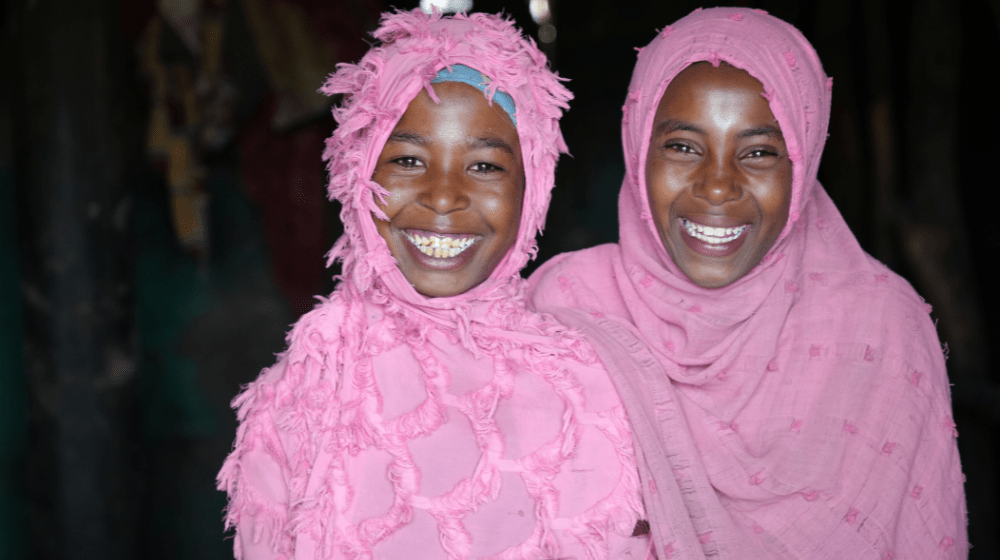Addis Ababa, 06 February 2024: Today, the world is observing the International
Day of Zero Tolerance for female genital mutilation (FGM) under the theme, “Her
Voice. Her Future: Investing in Survivors – Led movements to End Female
Genital Mutilation.” UNFPA and UNICEF are making a joint call for stepping up
support to survivors of FGM, by prioritizing investments in survivor-led initiatives
that are centered around girl’s empowerment, access to essential sexual and
reproductive health (SRH), legal, education, mental health, and psychosocial support
services.
FGM is a human rights violation that limits access to opportunities and resources
towards the realization of the rights of girls and women to basic services, including
health, education, safety, and reaching their full potential. Ending FGM is a national
priority in Ethiopia, with an action plan to end the practice by 2030. For FGM to be
eliminated in the country, there should be continued investment and leveraging of
the expertise and local knowledge of the 25 million girls and women who are
survivors of FGM for prevention, mitigation, and response work.
“As Women-led and survivor-led organizations, especially at the grassroots level,
such as the Women Extension Workers in the Afar Region, have an in-depth
understanding of the challenges that women and girls face, prompting their
leadership is key to accelerating progress in ending the practice of FGM,” says Mr.
Koffi Kouame, UNFPA Country Representative. “It is critical to engage FGM survivors
meaningfully to enable their active role and contribution to all FGM prevention and
response interventions at all levels,’ Mr Kouame, stressed.
“The untold suffering of FGM survivors and their role in ending FGM is a significant
issue that cannot be overstated like Momina who has undergone de-infibulation
procedure in one of the health facilities in Afambo Health Centre, in the Afar region.
Such health facilities provide clinical management of FGM complications by helping
women subjected to infibulation. Due to her experience, Momina remains among the
few mothers who have not subjected their daughters to FGM in the Afar region. It is
our collective responsibility to prevent the 2.9 million girls in this country who are at
risk of undergoing FGM and becoming survivors unless urgent action is taken to
prevent it,” says Dr. Aboubacar Kampo, UNICEF Ethiopia Representative.
Studies show that attitudes towards the practice of FGM are shifting at the
community level in Ethiopia, with more than 8 in 10 girls and women opposing the
continuation of the practice and 78 per cent of boys and men reporting that men and
boys in their community are willing to marry a woman who did not undergo FGM,
which was the opposite one decade ago. In 2023, UNFPA and UNICEF reached more
than 5.6 million adolescent girls, boys, men, and women with FGM and child
marriage programmes through media, including comprehensive and transformative
life skills, Sexual and Reproductive Health (SRH), and sexuality education, training,
community conversations, legal, social support, dignity kits, hygiene, and sanitation
materials.
Ethiopia has made remarkable progress in the last decade in the reduction of FGM
prevalence among girls and women aged 15-49 from 74 per cent in 2005 to 65 per
cent in 2016. This shift happened after 2000, thanks to the Ministry of Women and
Social Affairs and its stakeholders. However, a lot remains to be done to eliminate
FGM ahead of the 2030 SDG target, as a substantial acceleration is required,
exceeding eight times the current pace of efforts in the country.
Efforts need to be redoubled to eliminate FGM at the national, regional, community,
and individual levels. The UNFPA and UNICEF Joint Programme on the Elimination of
FGM will continue to support the Ministry of Women and Social Affairs and other
partners in ending FGM by 2030 in Ethiopia.


